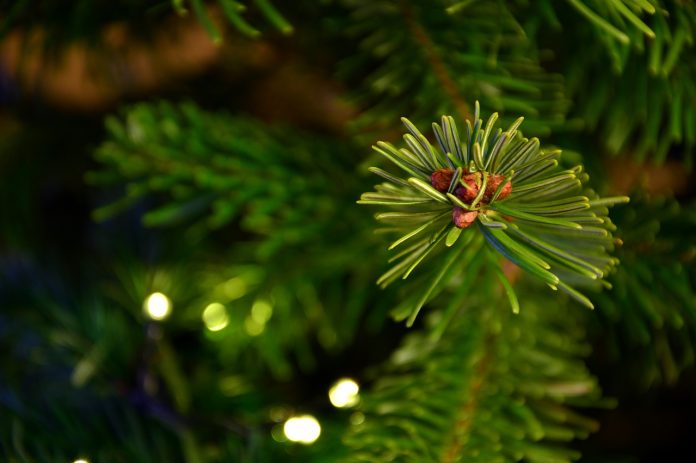The Christmas tree was a scrub cedar hacked from the edge of the woods that bordered the farm. Big-bulbed lights, strung in barber pole fashion, generated almost as much heat as the nearby wood stove. Yellowed Christmas cards, saved over the years and perched like doves in the untrimmed branches, served as ornaments.
“I believe this is the prettiest tree I’ve ever had,” Howard proclaimed as we stood in its glow. “And it smells good, too.”
The only scent evident to me was a mixture of wood smoke and the remains of a fried pork supper. But I lied and said, “Sure does.”
Howard beckoned me to sit. We had shared this Christmas Day in the dairy barn and it was his request that we share a bit of the night, also.
He knew I was alone because my family, his employer, was visiting relatives. I knew he was alone because he was always alone, a bachelor for nearly 40 years.
“I’ll get us some Christmas cheer,” he offered as I sank into the sofa.
He shuffled off to the kitchen in untied work shoes. A minute later, he returned with two water glasses filled with rhubarb wine. We raised them to the day.
“It’s been a good Christmas, ain’t it, Allie-Boy,” he asked as he sat in a ladderback chair by the stove.
He had called me Allie Boy for as long as I could remember. I had taken to calling him Hoard the Dairyman, after the title of a farm magazine my father subscribed to.
I nodded. It had been a good day. Two wobbly newborn calves greeted us when we arrived at the dairy barn 14 hours earlier. Wet and shivering, we dried them with the past summer’s straw before showing them how to find breakfast at their mamas’ sides. One was a bull, the other a heifer.
“We ought to name ’em Mary and Joseph,” Howard now said as we rehashed the day, “on account of them being born today.”
Mary and Joseph? Generally, Howard had only one name for all cows: Succum. None of us knew what it meant or where it came from, but from the time he arrived on the farm in 1965 every cow was always Succum and every heifer was always Little Succum. A group of cows or calves were simply Big Succums or Baby Succums.
“Mary and Joseph they will be,” I said approvingly.
Silence hung in the stale air. I reckoned that if you had bached it for 40 years like Howard, silence wasn’t a void that always needed to be filled. So I worked on my wine and said nothing.
Howard reached for his pipe and the big red can of Velvet that had been my Christmas gift to him that morning.
“You want to roll yourself a smoke, Allie? I got some papers here.” I shook off the offer.
“Yep,” Howard said as if to himself, “that’s the prettiest tree I’ve ever had. And this is shaping up to be the nicest Christmas I’ve ever had because you came by.”
I looked at the tree and then at the old man ringed in tobacco smoke staring at it and I felt sad.
Not for him. I felt sad for me. I had agreed to come to his house to accommodate him, a favor for an aging hired man.
But he had not wanted a favor. All he had wanted was the chance to share his Christmas good fortune with me. He had some new wine, a warm fire, his best Christmas tree ever and week’s worth of tobacco. He was happy and he wanted to give me some of that happiness.
As I stared at the silhouette of Hoard the Dairyman in the glow of the Christmas lights, I saw a man of great warmth, vast wealth and pure honesty. He didn’t have a checking account or credit card, but he was far richer than the condescending college boy on his sofa.
“Well Hoard,” I said a very quiet minute later, “I better go. We both have got to be at the barn early tomorrow.”
He led me to the back door.
“Don’t forget,” he said as I headed for the truck, “we’ll call those calves Mary and Joseph.”
Now, almost 50 Christmas Nights later, I have not forgotten two calves named Mary and Joseph and Howard’s priceless gift of simple giving.
(Author’s Note: Originally published in 1995, this column was one of the first remembrances from the southern Illinois dairy farm of my youth. It also is the most requested and most reprinted piece I’ve written. By tradition, it returns every year. Merry Christmas.)














